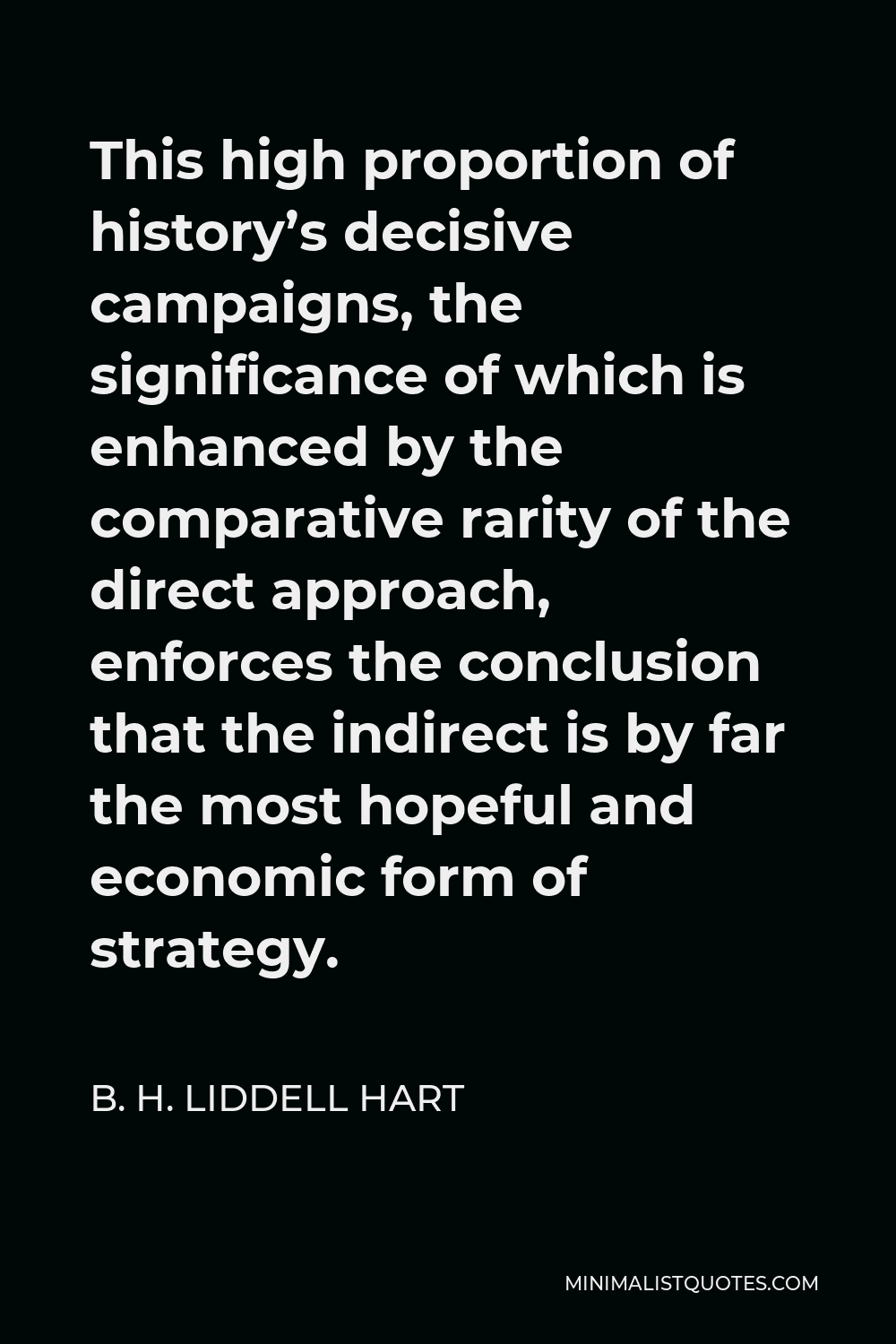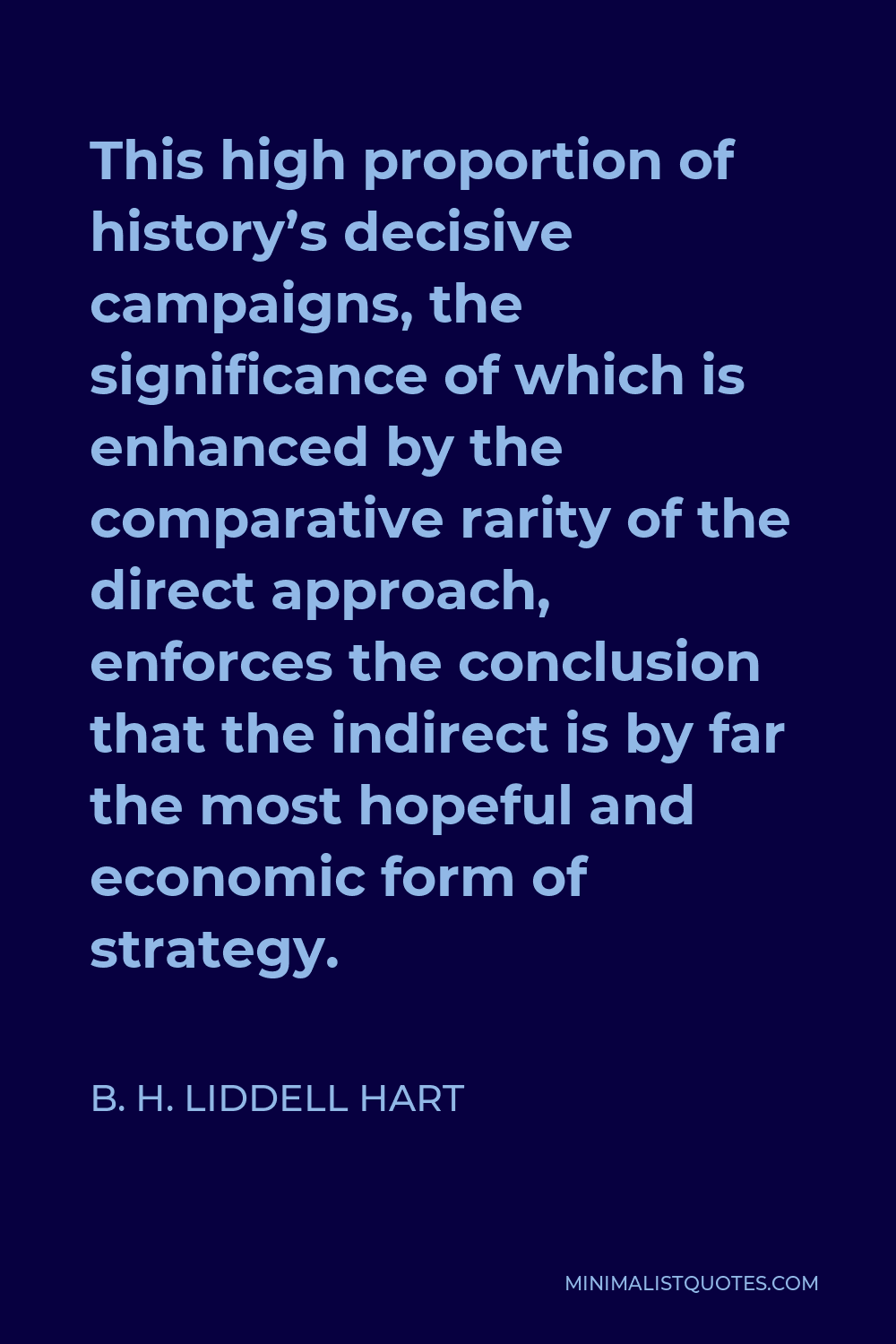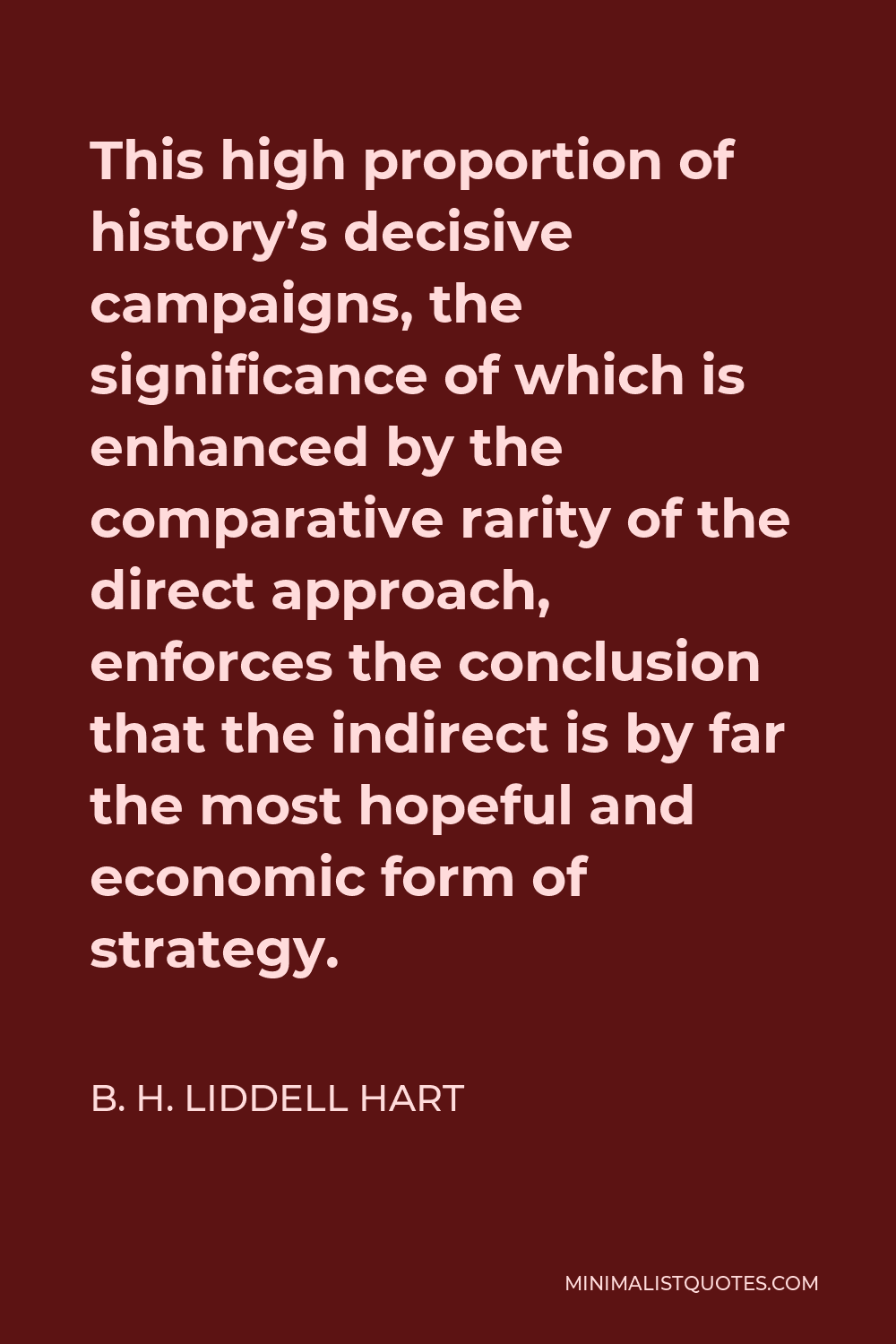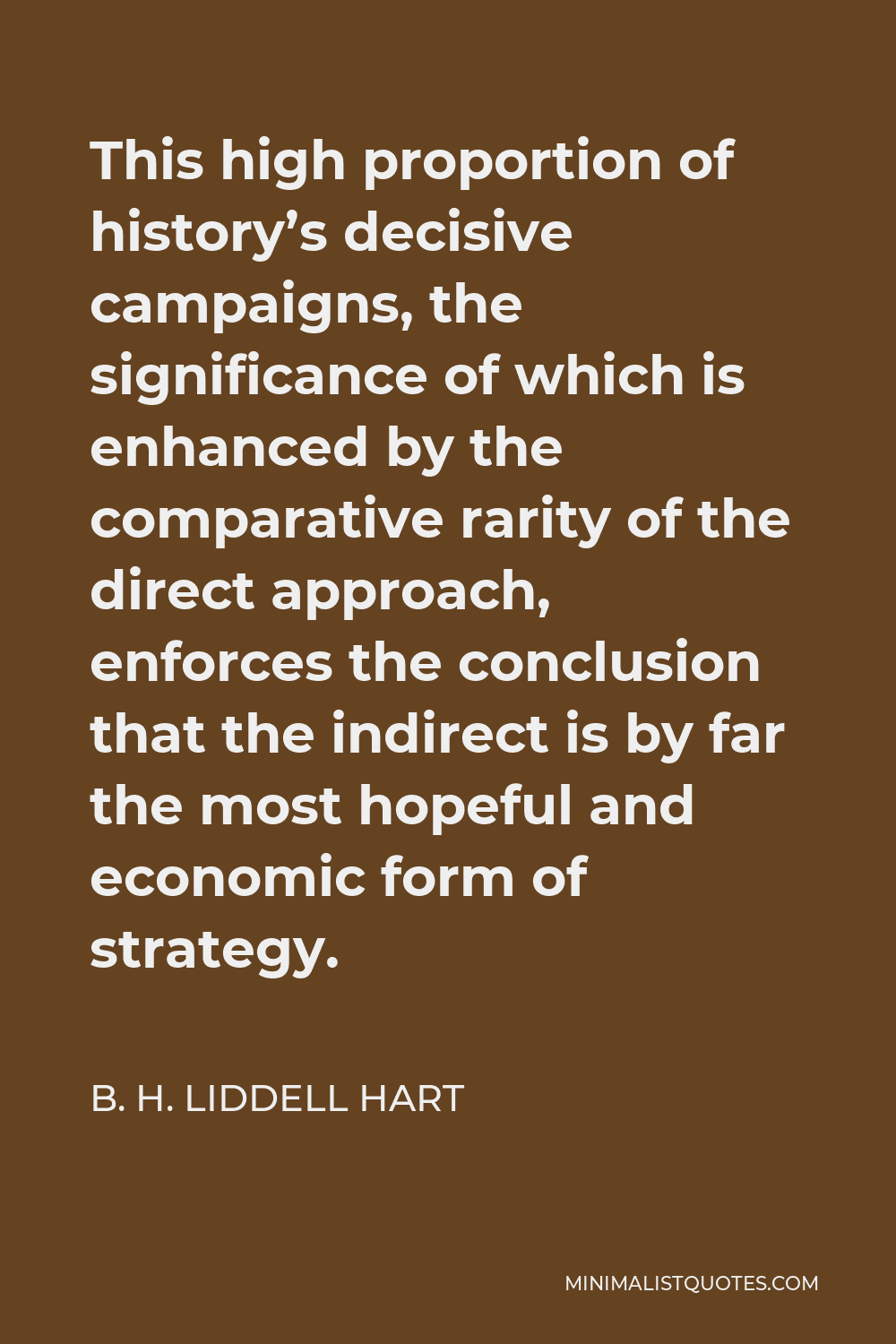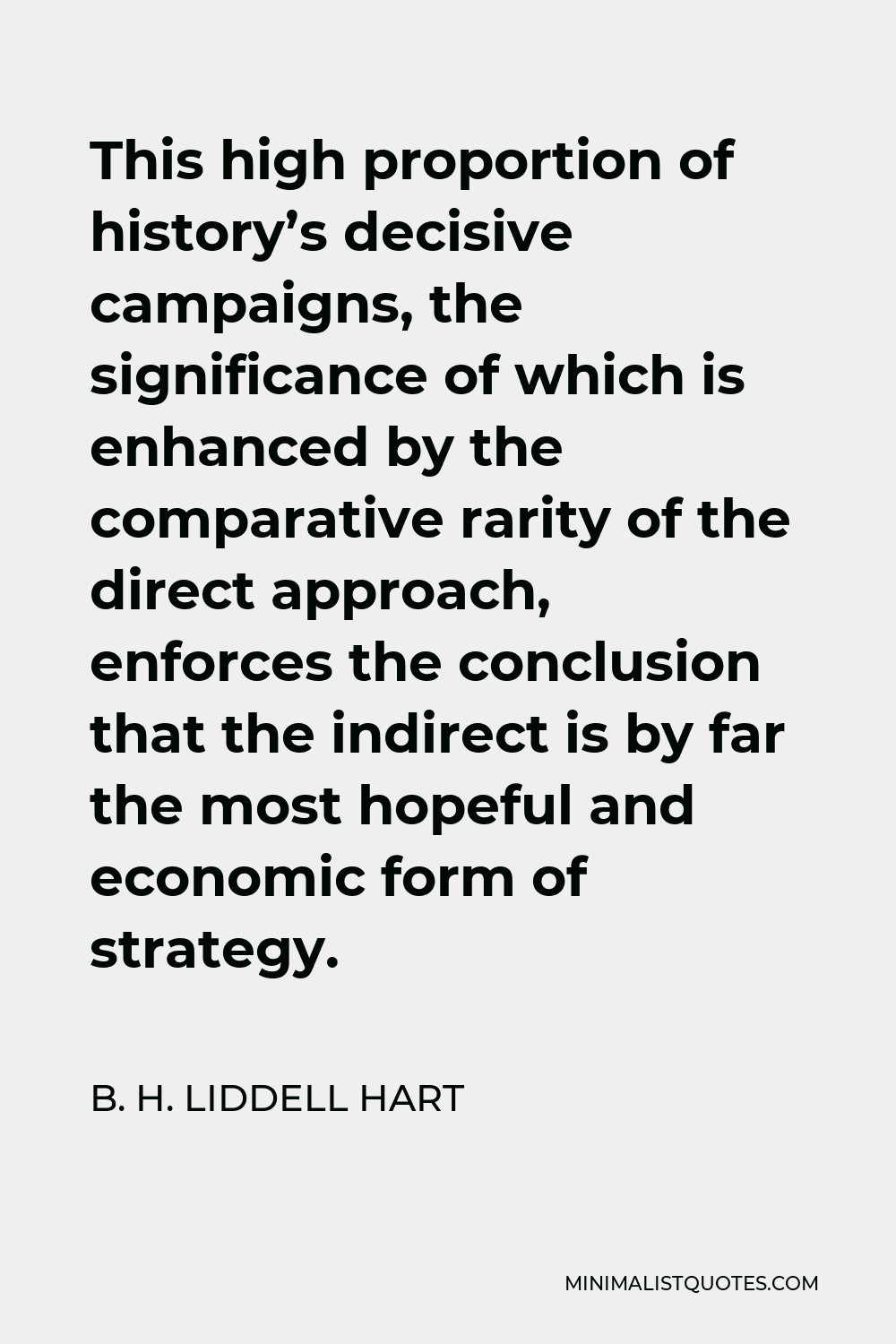As has happened so often in history, victory had bred a complacency and fostered an orthodoxy which led to defeat in the next war.
B. H. LIDDELL HARTThis high proportion of history’s decisive campaigns, the significance of which is enhanced by the comparative rarity of the direct approach, enforces the conclusion that the indirect is by far the most hopeful and economic form of strategy.
More B. H. Liddell Hart Quotes
-





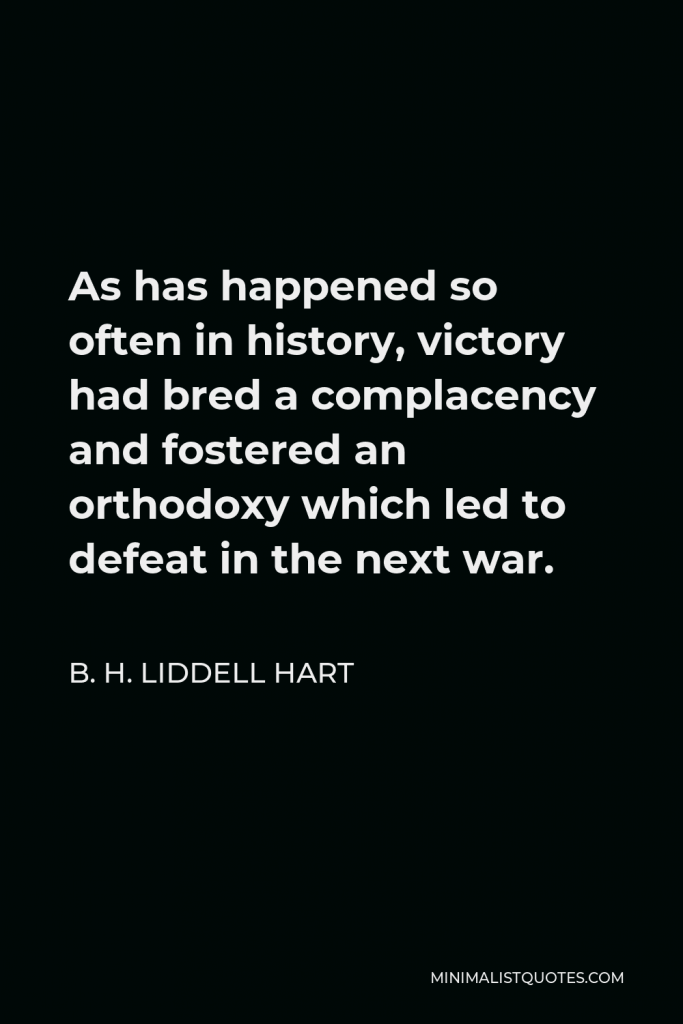

-





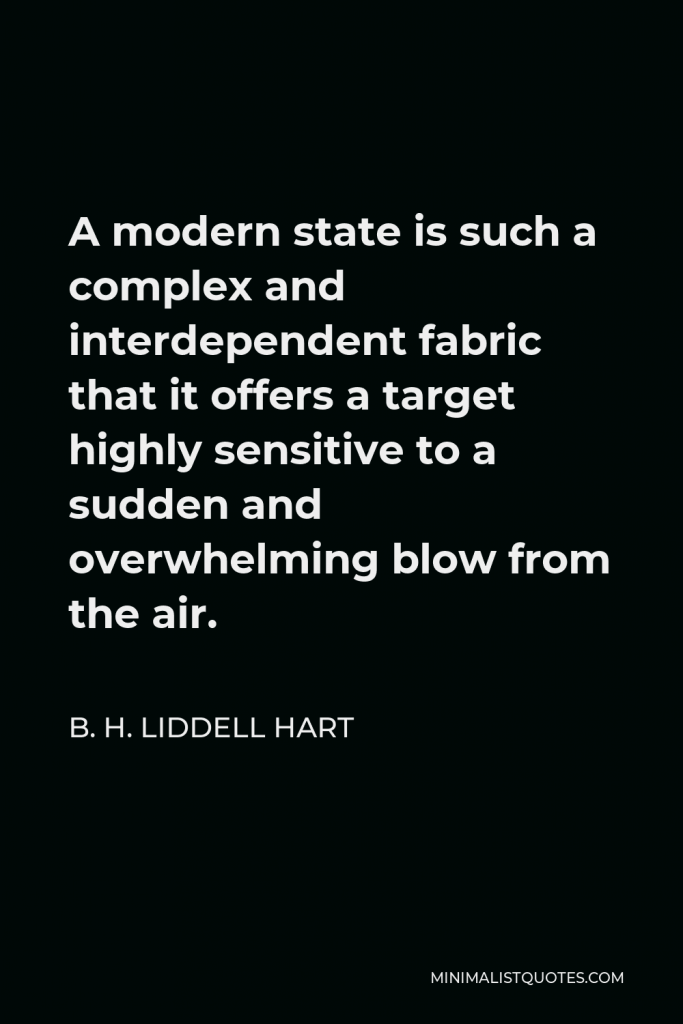

A modern state is such a complex and interdependent fabric that it offers a target highly sensitive to a sudden and overwhelming blow from the air.
B. H. LIDDELL HART -





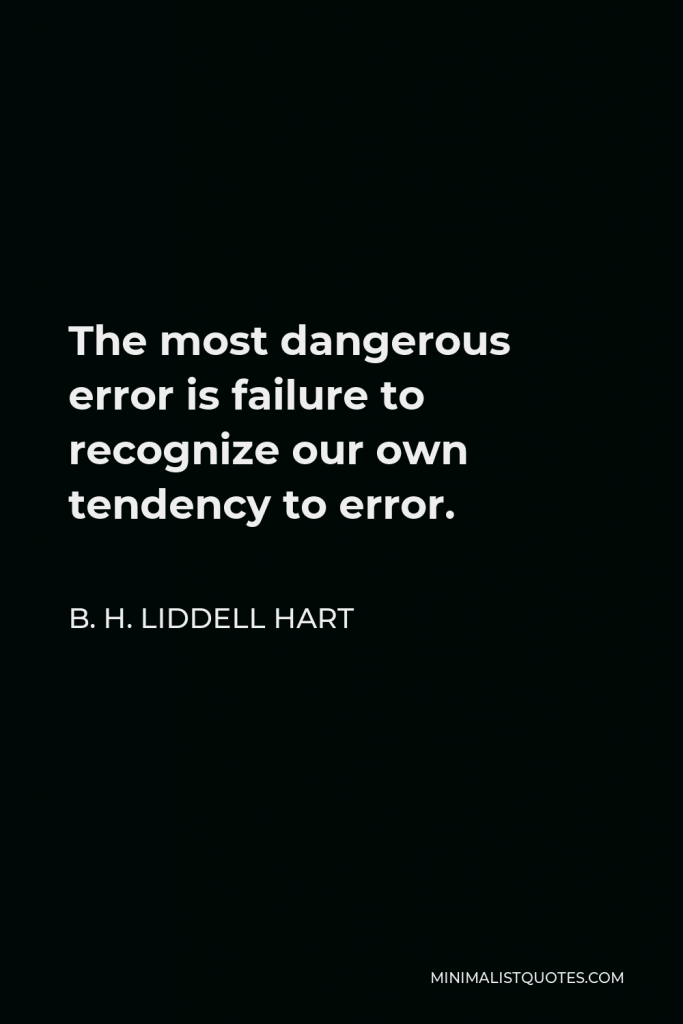

The most dangerous error is failure to recognize our own tendency to error.
B. H. LIDDELL HART -





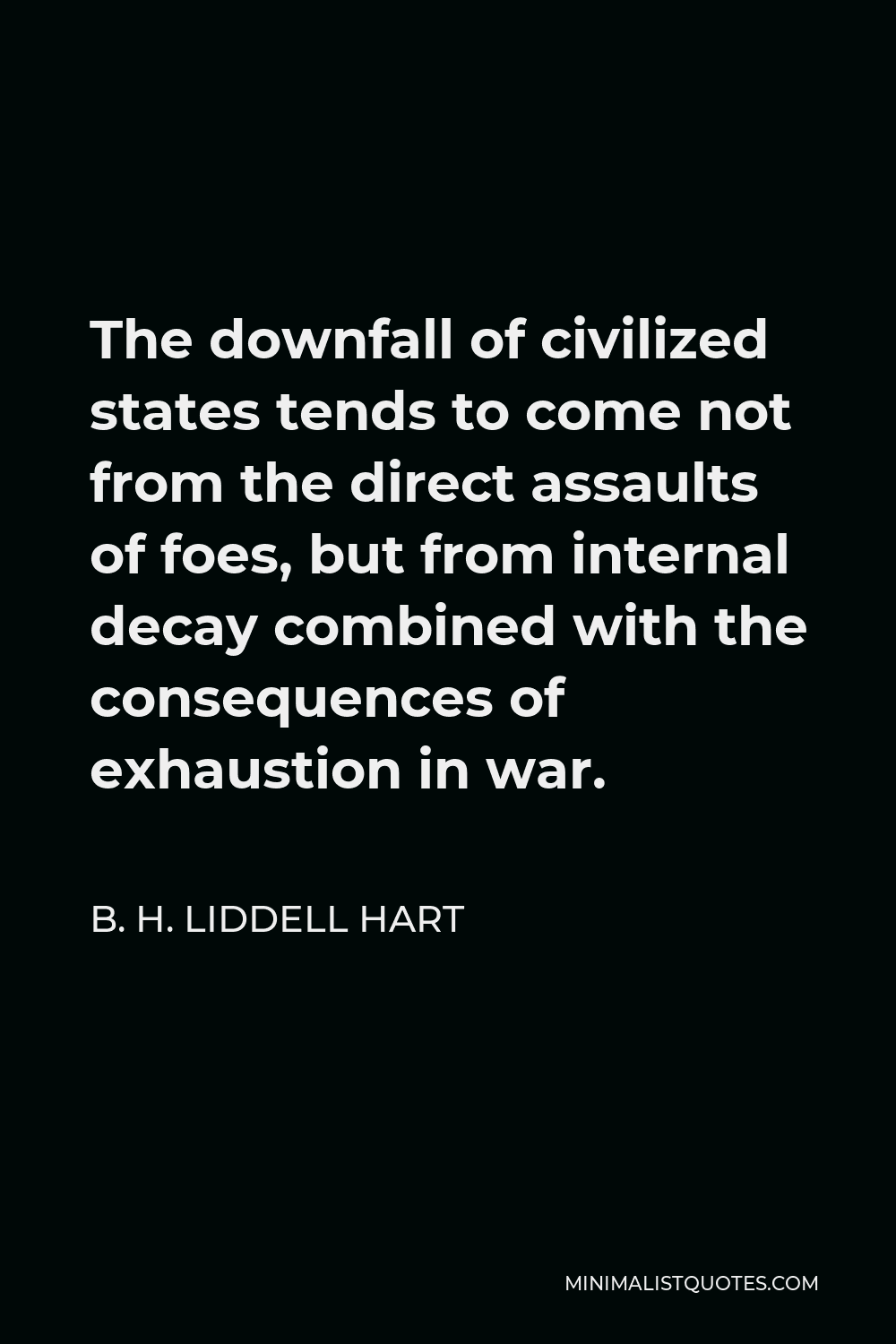
The downfall of civilized states tends to come not from the direct assaults of foes, but from internal decay combined with the consequences of exhaustion in war.
B. H. LIDDELL HART -







Ensure that both plan and dispositions are flexible, adaptable to circumstances. Your plan should foresee and provide for a next step in case of success or failure.
B. H. LIDDELL HART -





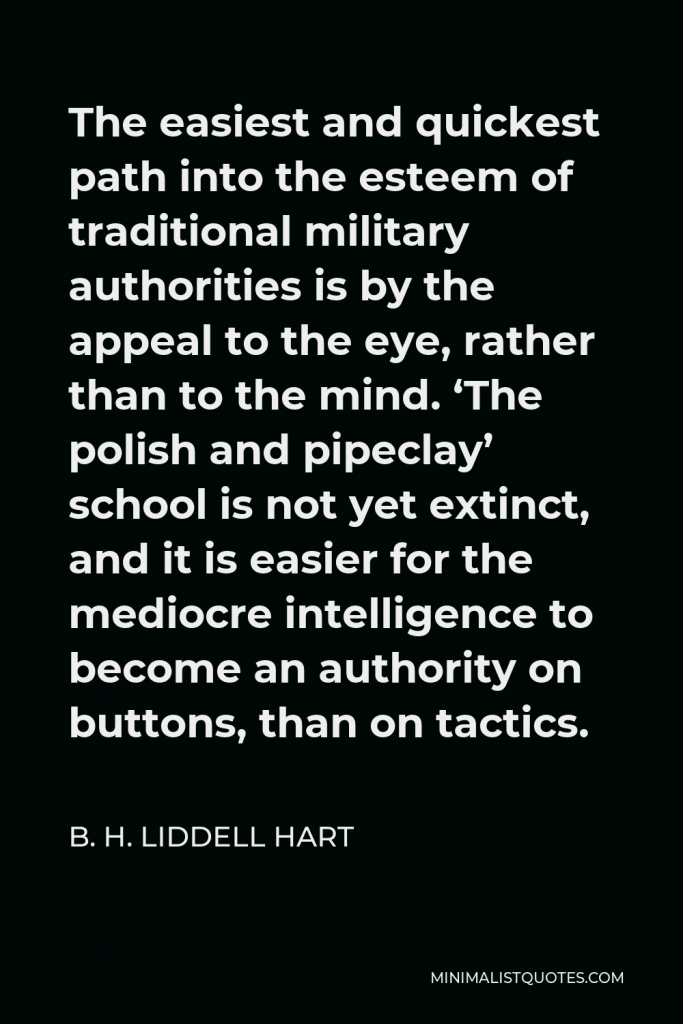

The easiest and quickest path into the esteem of traditional military authorities is by the appeal to the eye, rather than to the mind. ‘The polish and pipeclay’ school is not yet extinct, and it is easier for the mediocre intelligence to become an authority on buttons, than on tactics.
B. H. LIDDELL HART -





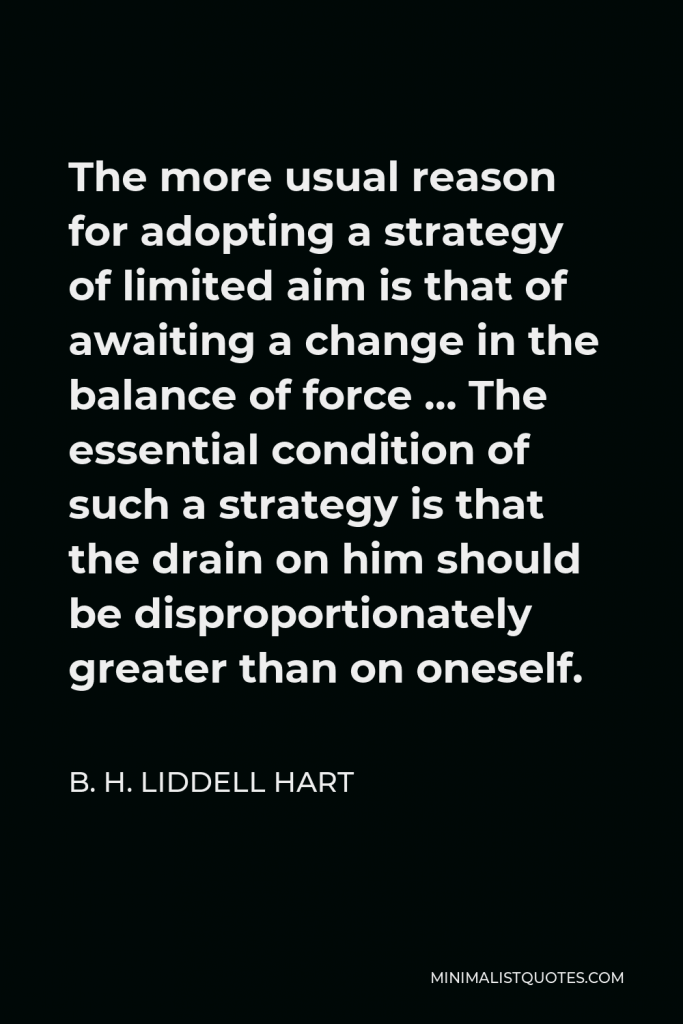

The more usual reason for adopting a strategy of limited aim is that of awaiting a change in the balance of force … The essential condition of such a strategy is that the drain on him should be disproportionately greater than on oneself.
B. H. LIDDELL HART -





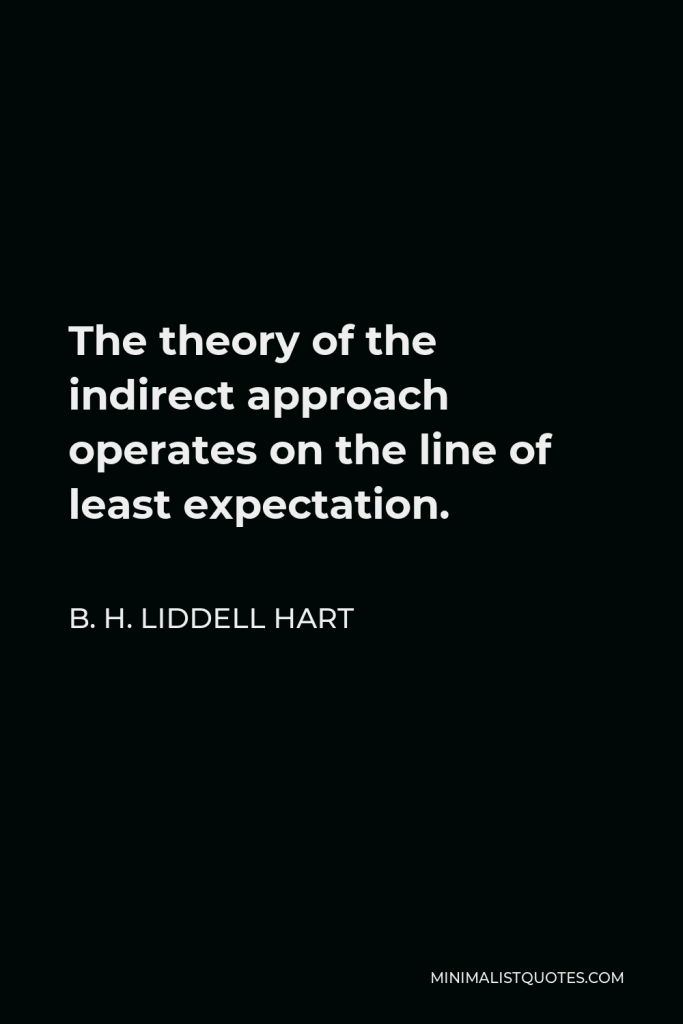

The theory of the indirect approach operates on the line of least expectation.
B. H. LIDDELL HART -





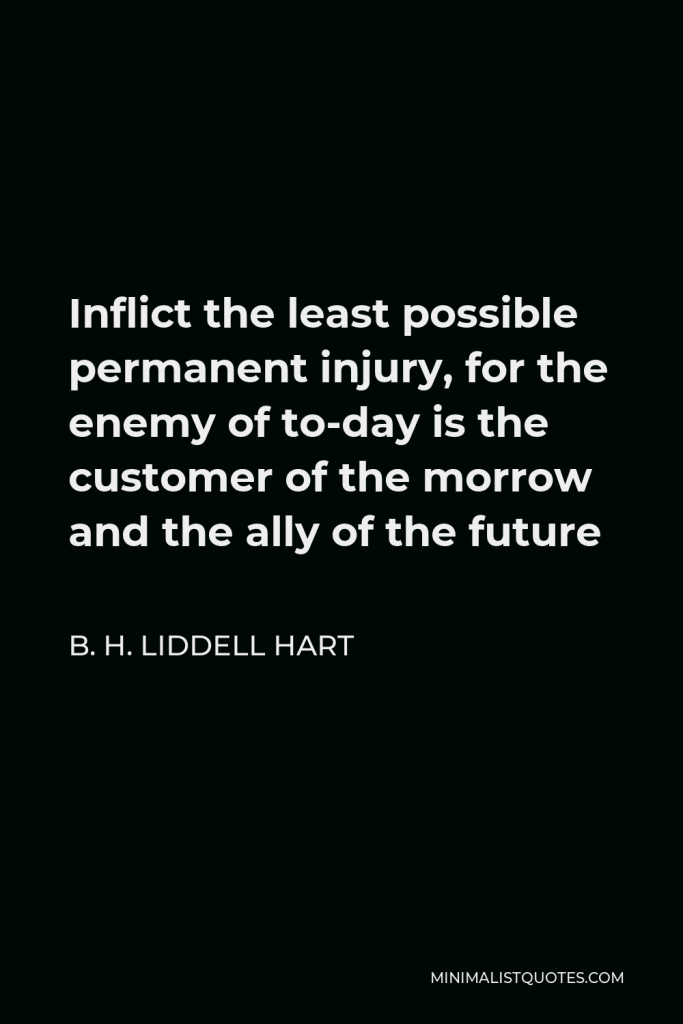

Inflict the least possible permanent injury, for the enemy of to-day is the customer of the morrow and the ally of the future
B. H. LIDDELL HART -





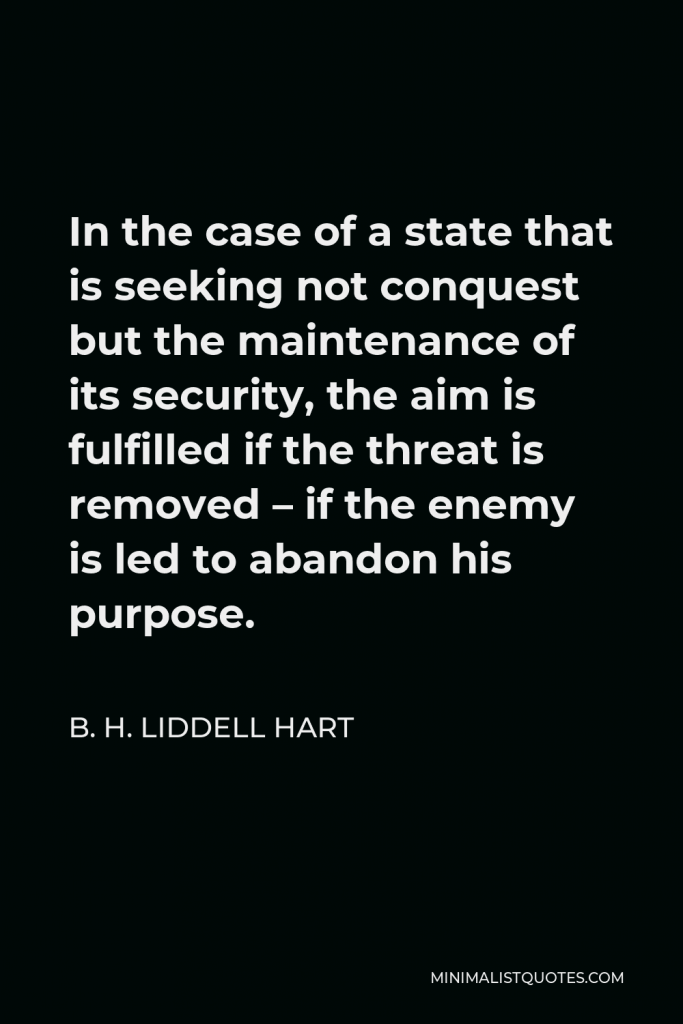

In the case of a state that is seeking not conquest but the maintenance of its security, the aim is fulfilled if the threat is removed – if the enemy is led to abandon his purpose.
B. H. LIDDELL HART -





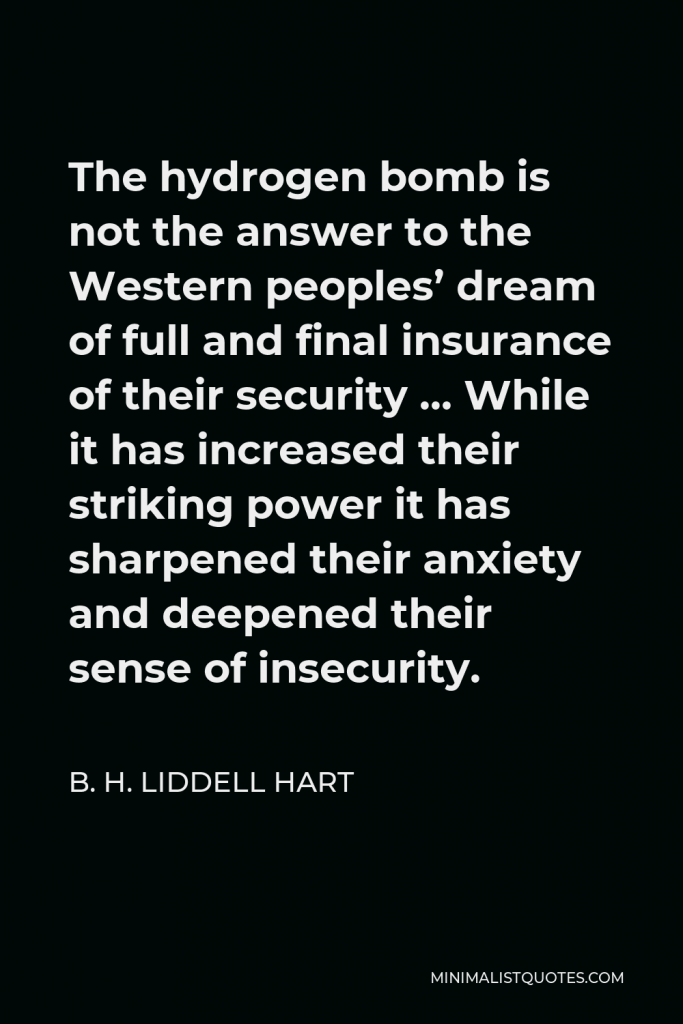

The hydrogen bomb is not the answer to the Western peoples’ dream of full and final insurance of their security … While it has increased their striking power it has sharpened their anxiety and deepened their sense of insecurity.
B. H. LIDDELL HART -





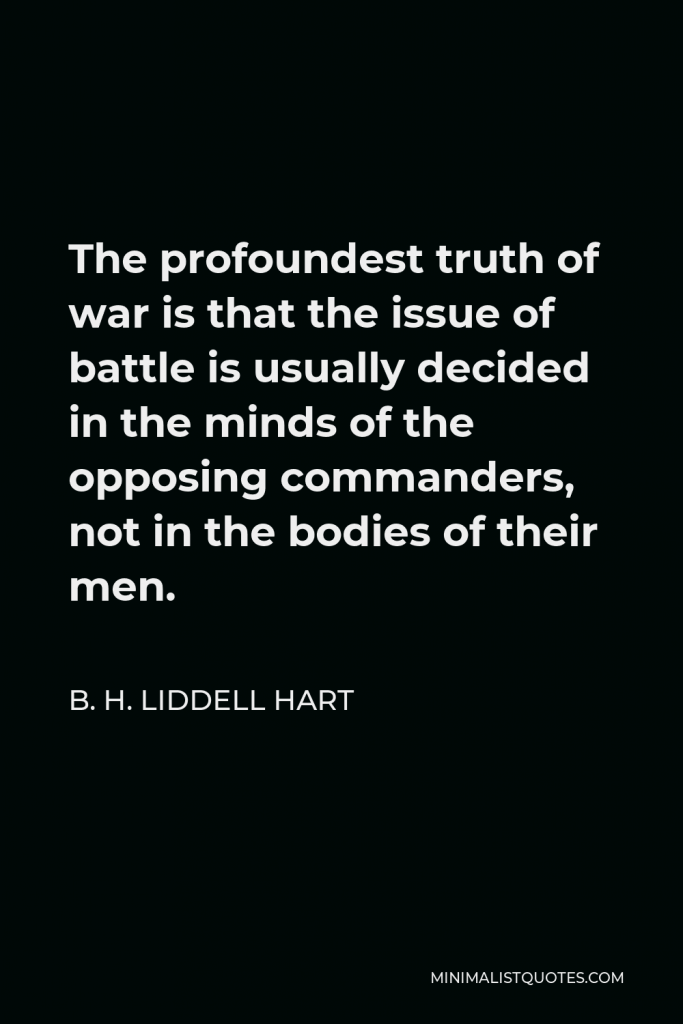

The profoundest truth of war is that the issue of battle is usually decided in the minds of the opposing commanders, not in the bodies of their men.
B. H. LIDDELL HART -







It is only to clear from history that states rarely keep faith with each other, save in so far (and so long) as their promises seem to them to combine with their interests.
B. H. LIDDELL HART -





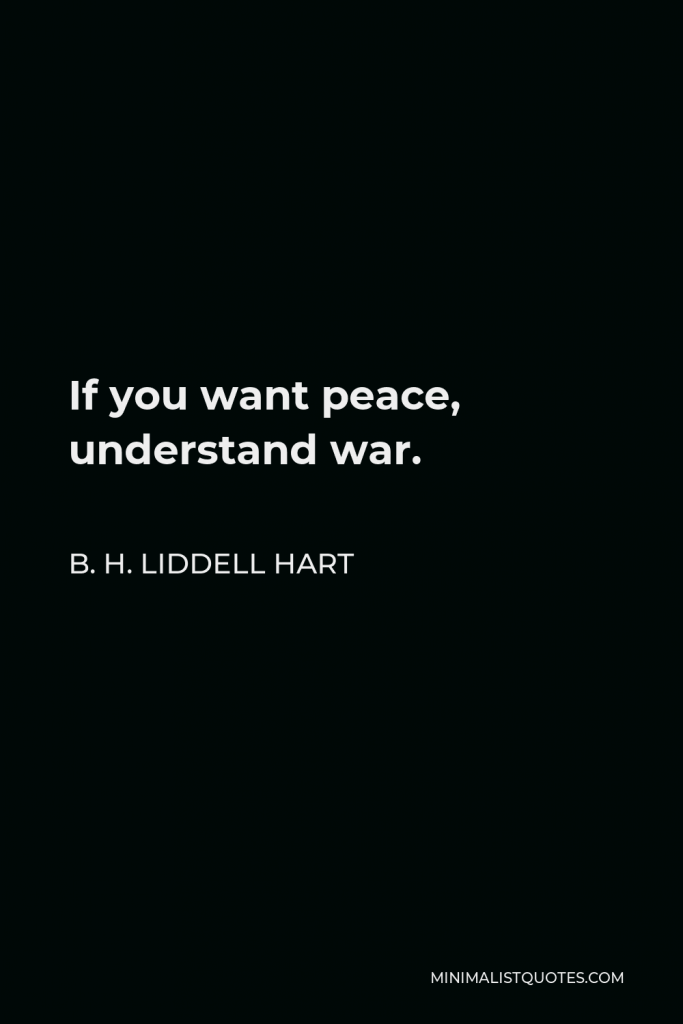

If you want peace, understand war.
B. H. LIDDELL HART -





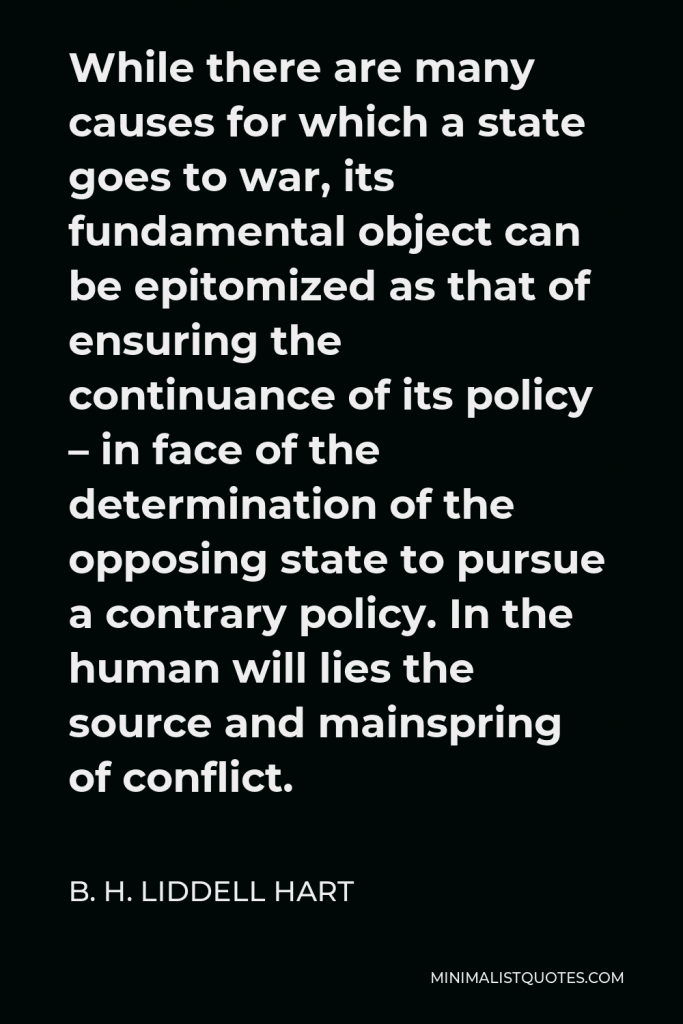

While there are many causes for which a state goes to war, its fundamental object can be epitomized as that of ensuring the continuance of its policy – in face of the determination of the opposing state to pursue a contrary policy. In the human will lies the source and mainspring of conflict.
B. H. LIDDELL HART -





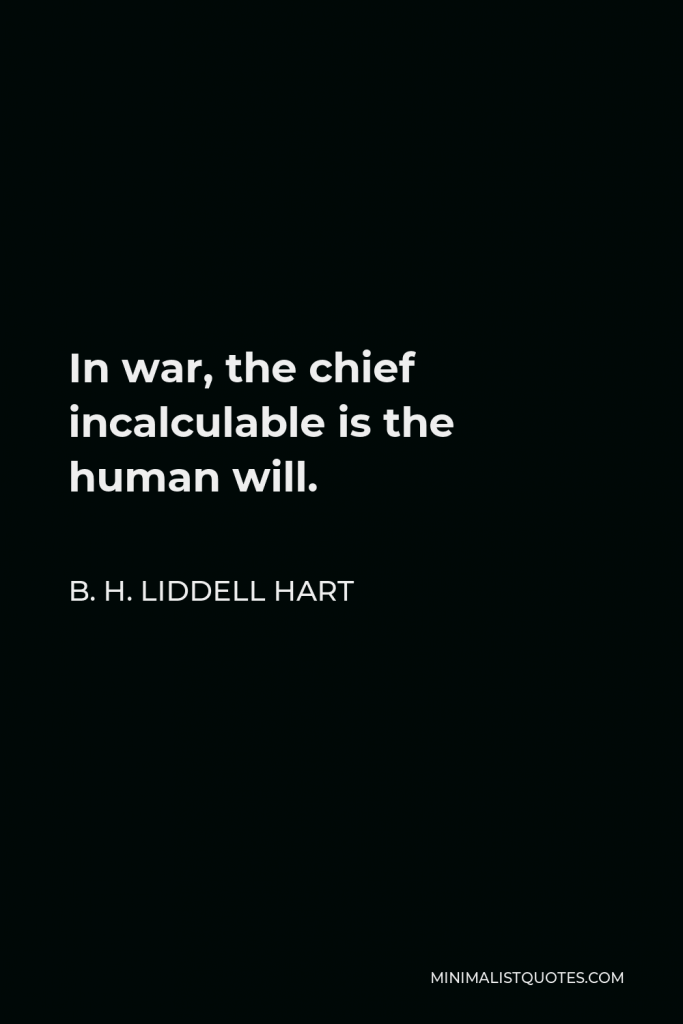

In war, the chief incalculable is the human will.
B. H. LIDDELL HART
